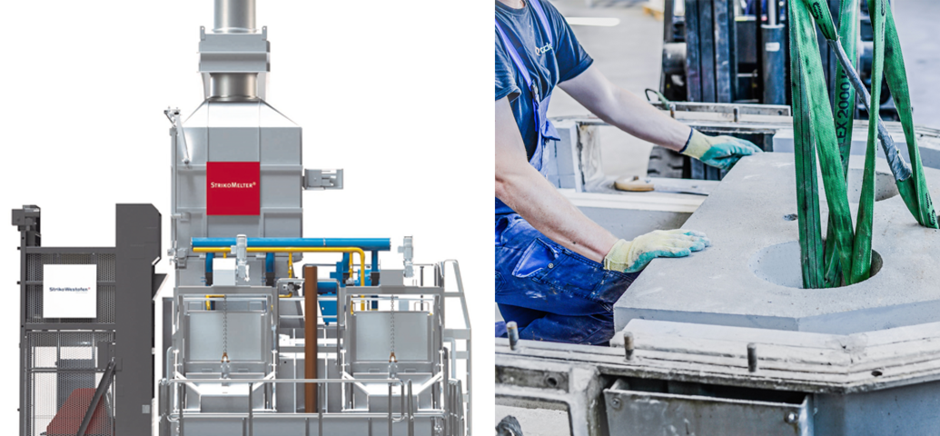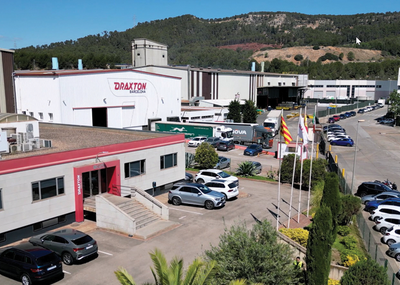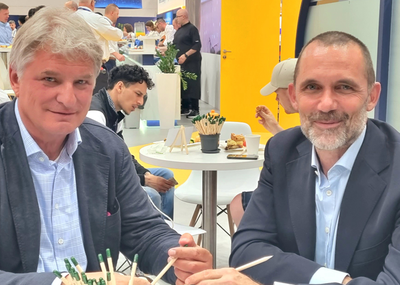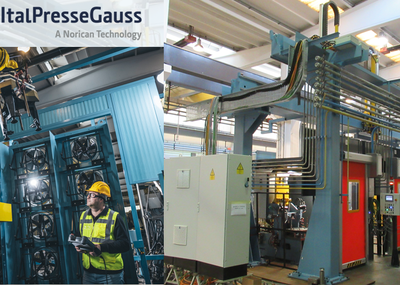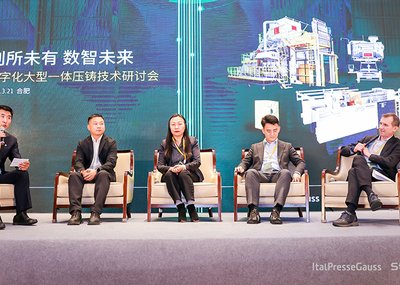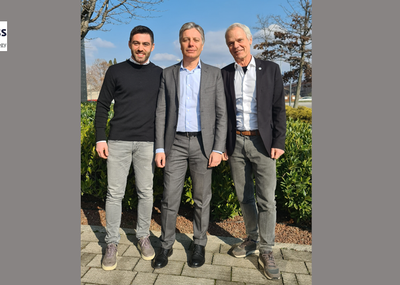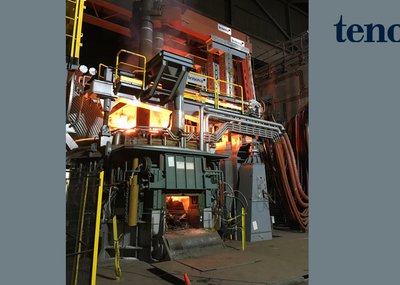Melting up to 4000 tons of aluminium per month to produce parts ranging from engine and gearbox supports, suspension components and electronic covers, to headlight and thermostat housings, FÉMALK needs its melting and dosing furnaces to operate with high levels of energy efficiency. Even after years of service.
To see where potential savings and sustainability gains could be achieved through equipment modernization options, the Hungarian die caster approached long-term supplier StrikoWestofen, via local agent PRACTILUB Professional Zrt., to review equipment and identify opportunities.
Melting furnace: exceeding energy reduction expectations
FÉMALK asked StrikoWestofen to start by looking at a 12-year-old StrikoMelter shaft melting furnace in need of relining.
StrikoMelter is energy efficient be design, as hot waste gases from the melting process are used to preheat the melting material in the EtaMax shaft prior to the actual melting process. Ideal for heling die casters achieve their sustainable casting goals.
But as with any melting furnace, mechanical and thermal stress caused by temperature deviations, charging materials and dross, make refractory relining an inevitable and necessary process for maximizing furnace lifespan, optimizing melting performance and avoiding damage-related energy loss.
Based on performance tests carried out in partnership with FÉMALK prior to relining, StrikoWestofen identified that energy savings of 22% could be achieved with a full relining of the furnace melting chamber and partly cosmetic repair of the holding chamber. Not enough, further energy saving options had been carried out such as the optimization of the melting process.
The StrikoMelter was removed, relined, re-installed and tested under full operational conditions in less than 4 weeks, with results showing that the energy consumption per ton of molten aluminum had been reduced by 26%, significantly above the target set.
Bence Gölöncsèr from FÉMALK commented: “StrikoWestofen were very transparent from start to finish, working in partnership with us to obtain true performance figures - pre and post relining - to set and measure targets.
“We knew that the saving level estimated was based on a 50:50 ratio of ingots/returns. However, operating needs meant the post-refurb testing was carried out with ingots accounting for approximately 91% of charging material. Given that this should have resulted in a lower % improvement - as charging with larger quantities of ‘new’ aluminium ingots consumes more energy - to have achieved savings greater than the target specified was very impressive. We are delighted with the results and the speed with which this project took place.”
Dosing furnace: two Westomat relinings in two weeks
As part of its energy efficiency review of FÉMALK ‘s equipment, StrikoWestofen also refurbished two Westomat dosing furnaces. Relining dosing furnaces with OEM parts rather than third-party alternatives has been proven to reduce energy consumption by up to 50% - a fact FÉMALK sought to capitalize on.
StrikoWestofen has developed a dosing furnace relining service which uses high quality pre-casted refractory parts. As well as improving insulation and therefore energy consumption, this approach also means relining can be carried out far quicker. This is due to the pre-casted refractory parts being delivered in a pre-sintered state, therefore speeding up the heating process once work on the furnace is complete.
Holger Stephan from StrikoWestofen said: “We completed relining work on the Westomat in less than 2 weeks, ensuring minimal disruption for the customer. At a time when energy costs are so high, the savings generated, combined with the performance improvements delivered for the StrikoMelter, will enable FÉMALK to reduce operational costs and optimize ROI on their equipment. The project also supports the customer’s focus on sustainable production.”

